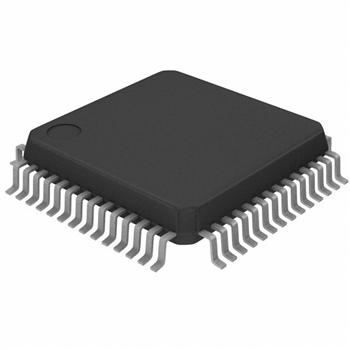SN74ABT162827ADGGR 供应商
-
SN74ABT162827ADGGR
品牌:TI 封装/批号:原厂原装/22+ -
SN74ABT162827ADGGR
品牌:TI(德州仪器) 封装/批号:TSSOP-56/2022+
SN74ABT162827ADGGR 属性参数
- 标准包装:1
- 类别:集成电路 (IC)
- 家庭:逻辑 - 缓冲器,驱动器,接收器,收发器
- 系列:74ABT
- 逻辑类型:缓冲器/线路驱动器,非反相
- 元件数:2
- 每个元件的位元数:10
- 输出电流高,低:12mA,12mA
- 电源电压:4.5 V ~ 5.5 V
- 工作温度:-40°C ~ 85°C
- 安装类型:表面贴装
- 封装/外壳:56-TFSOP(0.240",6.10mm 宽)
- 供应商设备封装:56-TSSOP
- 包装:®
- 其它名称:296-3895-6
产品特性
- Members of the Texas Instruments Widebus™ Family
- Output Ports Have Equivalent 25- Series Resistors, So No External Resistors Are Required
- High-Impedance State During Power Up and Power Down
- Typical VOLP (Output Ground Bounce) < 1 V at VCC= 5 V, TA = 25°C
- Distributed VCC and GND Pin Minimizes High-Speed Switching Noise
- Ioff and Power-Up 3-State Support Hot Insertion
- Flow-Through Architecture Optimizes PCB Layout
- Latch-Up Performance Exceeds 500 mA Per JEDEC Standard JESD-17
- ESD Protection Exceeds JESD 22 2000-V Human-Body Model (A114-A) 200-V Machine Model (A115-A)
- 2000-V Human-Body Model (A114-A)
- 200-V Machine Model (A115-A)
产品概述
The ’ABT162827A devices are noninverting 20-bit buffers composed of two 10-bit buffers with separate output-enable signals. For either 10-bit buffer, the two output-enable (1OE1\ and 1OE2\, or 2OE1\ and 2OE2\) inputs must both be low for the corresponding Y outputs to be active. If either output-enable input is high, the outputs of that 10-bit buffer are in the high-impedance state.The outputs, which are designed to source or sink up to 12 mA, include equivalent 25- series resistors to reduce overshoot and undershoot.These devices are fully specified for hot-insertion applications using Ioff and power-up 3-state. The Ioff circuitry disables the outputs, preventing damaging current backflow through the devices when they are powered down. The power-up 3-state circuitry places the outputs in the high-impedance state during power up and power down, which prevents driver conflict.To ensure the high-impedance state during power up or power down, OE\ shall be tied to VCC through a pullup resistor; the minimum value of the resistor is determined by the current-sinking capability of the driver.
